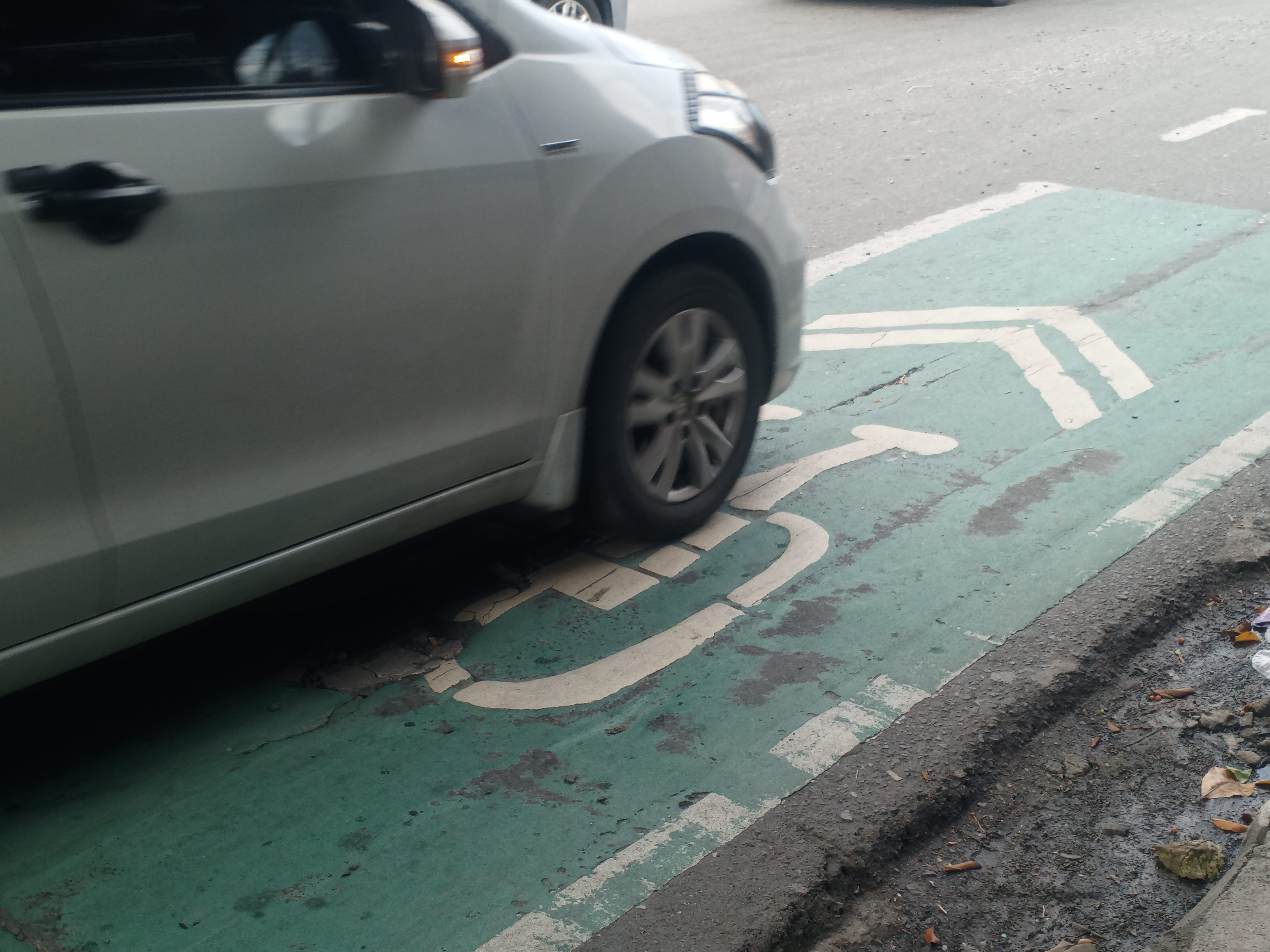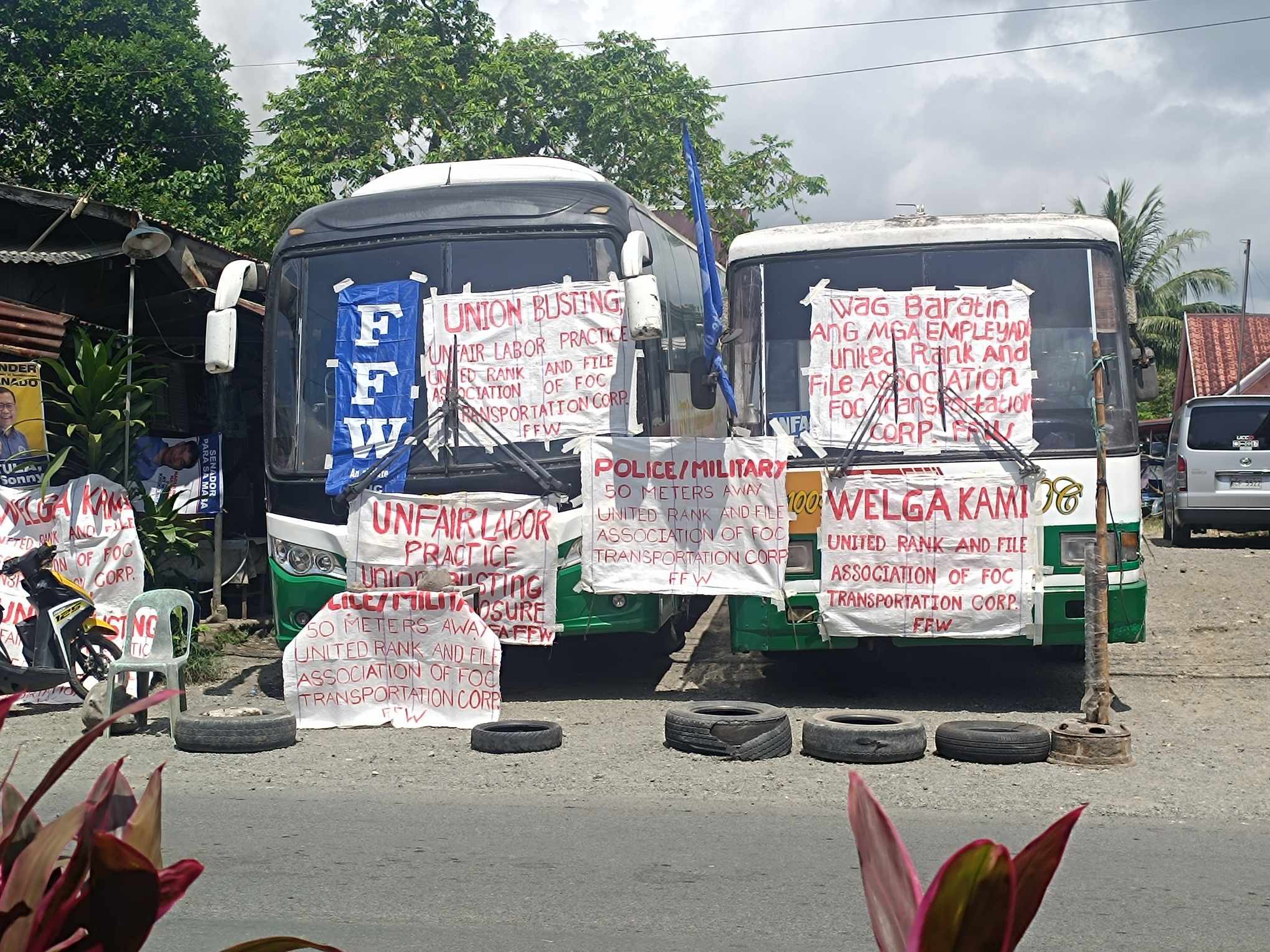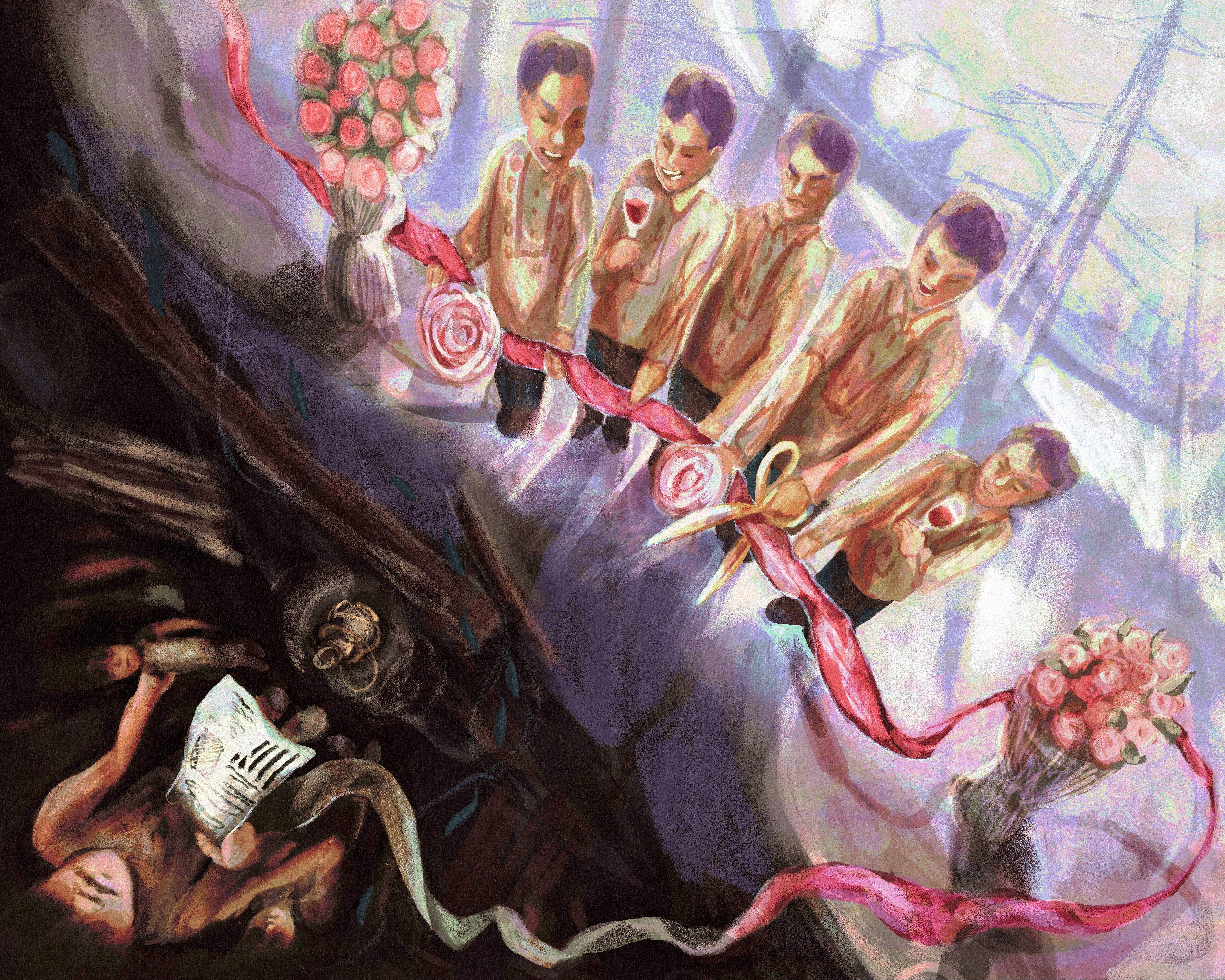On an ordinary Monday morning, the roads would have been filled with jeepneys rushing to transport passengers to their destinations. But this was no ordinary day and the jeepney drivers’ destinations are more than just places for now.
Jeepney drivers held a nationwide strike on March 6 and 7 to protest the Public Utility Vehicle Modernization Program (PUVMP), which effectively phases out jeepney units that are at least 15 years old. Benito Garcia, a 60-year-old jeepney driver and operator, joined the protest from Philcoa to Mendiola, carrying with him a green folder with the call “No Motion for Extension of PA (Provisional Authority), 6 Months Lang.”
Slipped in his folder was a document from the Land Transportation Franchising and Regulatory Board (LTFRB) stating that he only has until April 2023 to operate, unless he undergoes franchise consolidation and joins a cooperative. LTFRB Memorandum Circular No. 2023-013 mandates jeepney operators to join a cooperative until June this year if they want to operate until the end of 2023. During that period, they should be processing their franchise consolidation and preparing to phase out their traditional jeepneys. Due to clamor from the transport sector, LTFRB moved the deadline for consolidation to December.
While the deadline for franchise consolidation was postponed, Benito received the notice of the expiration of his PA before the announcement of the extension. According to him, this may pose conflicts if he signs the waiver agreeing to the terms and conditions of the LTFRB that his franchise would not be renewed if he failed to comply with the consolidation.
“Kahit na pumayag ang LTFRB [sa extension ng PA] pero nakapirma ka, pwede kang tanggalan ng franchise kasi pumirma ka eh,” he told the Collegian. “Pwedeng mangyari sa kahit kanino itong nangyari sa akin.”
Six months is not enough time to accomplish all of the requirements of the PUVMP, said Benito. Like the drivers who joined the strike, he is not against the modernization of jeepneys, but he does not agree with how it is being done. He sees a problem with the high monthly amortization to operate jeepneys, which makes obtaining a franchise impossible for small drivers and operators like him.
Throughout the protest, he would tap his fellow drivers to share about the situation of his PA so that they are wary of the documents they sign. Benito wanted to shine a light on the issue as he treasured his job very dearly. To him, being able to go back to the roads after over two years of the pandemic is not only a return of his livelihood but a second chance at living as well.
During the pandemic, when mobility was limited, he almost killed himself because not being able to provide for his family depressed him. After all, it was his jeepney that allowed him to provide for his wife and five children for 37 years now.
So when the public transportation somehow went back to normal, Benito saw his life coming back to normal as well. He would traverse the Mabini-Baclaran route as early as 5:30 a.m. and go home at 3 p.m. But with yet another threat to his and other drivers’ livelihood, Benito decided to join the collective action of the transport sector.
In doing so, he said he does not only fight for drivers but commuters as well. Benito has encountered passengers who could not pay the jeepney fares, and he knew that the PUVMP would only increase the cost of transportation.
Before coming to the protest, his sons asked him why he had to join. “Kasi kailangan ko ‘to, eh. Kailangan kong maghanapbuhay, wala nang tatanggap sa akin [na trabaho] sa ganitong edad,” he told them.
A week without income is nothing for Benito compared to a lifetime of no more livelihood to hold on to. And while the transport sector put an end to its strike earlier this week, drivers like Benito are not afraid to once again halt operations should their demands continue to be ignored by the government. ●







